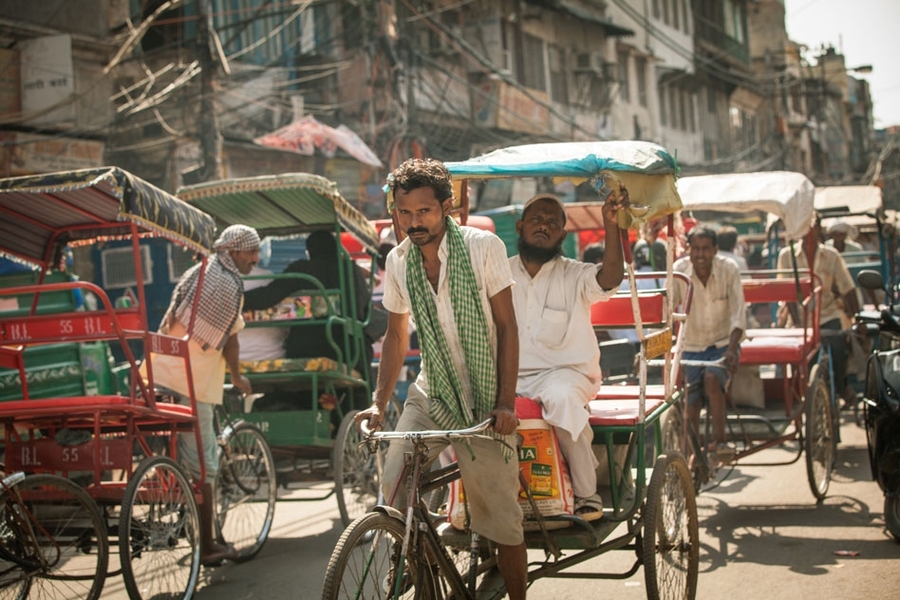Trying to stay sober does not change the earnings of some workers — but it does increase the amount of money they save, acording to an MIT economist’s field experiment about low-income workers in India.
The experiment, involving a large group of rickshaw drivers in the city of Chennai, on India’s eastern coast, produced a number intriguing results and paints a detailed picture about the effects of alcohol consumption on low-income workers in the developing world.
In the study, workers offered monetary incentives for staying sober decreased their daytime drinking. While this did not significantly affect their earnings, their savings shot up by more than 50 percent, indicating an overall change of spending habits.
In addition to examining alcohol’s effects on earnings and savings, the study showed that many workers value sobriety quite highly: They would prefer to receive less income in exchange for periodic (but smaller) financial rewards for staying sober.
“Workers are willing to give up money in order to provide themselves incentives for future sobriety,” says Frank Schilbach, who is an assistant professor of economics at MIT, a faculty affiliate with MIT’s Abdul Latif Jameel Poverty Action Lab, and the author of a new paper detailing the results of the experiment.
“These choices reveal self-control problems with respect to alcohol consumption, to a greater extent than we found in other domains such as exercising or smoking,” Schilbach adds. “These workers would like to change their behavior in the future.”
Schilbach’s paper, “Alcohol and Self-Control: A Field Experiment in India,” appears in the American Economic Review.
Preferring a path to sobriety
The impetus for the study came from interviews that Schilbach, a development economist, conducted with poor families in India as part of a different project. Struck by how often alcohol was mentioned as a problem during these interviews, he conducted a 2014 survey of 1,227 low-income workers in Chennai; about 76 percent of respondents reported that they had consumed alcohol the previous day.
The experiment itself consisted of a three-week study in 2014 of 229 rickshaw drivers. (India still has some hand-pulled rickshaws, in which workers pull pasengers in small wheeled vehicles.) Schilbach divided the workers into three groups. Some received monetary incentives for staying sober; others received unconditional payments, whether they stayed sober or not; and a third group could choose which approach they took. Participants were given breathalyzer tests to assess their consumption levels.
The experiment produced a 13-percentage-point decrease in daytime drinking, although some participants self-reported that they shifted their drinking from daytime hours to nights, such that overall consumption did not change. And the earnings of drivers did not change significantly during the study period — something Schilbach was not necessarily anticipating.
“Perhaps surprisingly, I didn’t find evidence of impacts on labor outcomes,” Schilbach says, although he does not rule out such an effect in future studies with larger samples or bigger reductions in drinking.
The increase in savings, however, was significant, especially since it outpaced any decline in spending on alcohol. This suggests that at least some workers found sobriety led to more cautious spending habits.
“The effect of increased sobriety on savings are effects beyond any mechanical effects of having more money available,” Schilbach says.
Moreover, the study revealed significant demand for programs that could help workers stay sober. Over one-third of the study’s participants actually preferred to be given smaller incentive payments for staying sober, rather than have larger payments that were not linked to sobriety.
The average rickshaw worker in the study earned from 300 to 500 rupees per day, or about $5 to $8 in U.S. dollars; those opting into the sobriety-incentive system were willing to spurn about 30 rupees per day.
“The amounts that people are willing to pay are fairly large,” Schilbach notes. “They’re willing to forego about 10 percent of their daily income.”
As Schilbach notes, the result suggests that heavy drinkers themselves might also prefer higher taxation of alcohol, since it could help them reduce their drinking in the future.
Drinking to do the job
Overall, Schilbach says, the study helps us better comprehend the full relationship between drinking and work among some blue-collar laborers. For rickshaw drivers, he observes, drinking may help them as they perform their jobs.
“The nature of work is such that maybe alcohol helps some people in some ways,” Schilbach says. “The two primary reasons why people tell you they drink is, one, physical pain, and two, they’re been drinking for years and now it’s hard to stop. Rickshaw driving is a very tough job. This is very hard work, it’s a painful job to do. That’s a more general issue in low-income populations.”
The study is part of a broader research agenda Schilbach is pursuing that aims to better understand the psychological lives of poor people around the world and issues they grapple with, including alcohol consumption, sleep deprivation, and depression. These and related issues, he observes, have not been extensively studied, even relative to other elements in the lives of the working poor.
For his part, Schilbach readily states that the experiment is just a first step toward quantifying the study of these complicated social issues.
“You can think of this work as a start to try to analyze alcohol use and abuse in developing countries, which is a very understudied topic in general,” Schilbach says. “I think there is much more to be studied, and learned, and the hope is that leads to improved policies.”
The study was supported by funding from the Weiss Family Fund for Research in Development Economics, the Lab for Economic Applications and Policy, the Warburg Funds, the Inequality and Social Policy Program, the Pershing Square Venture Fund for research on the Foundations of Human Behavior, and an anonymous donor.









